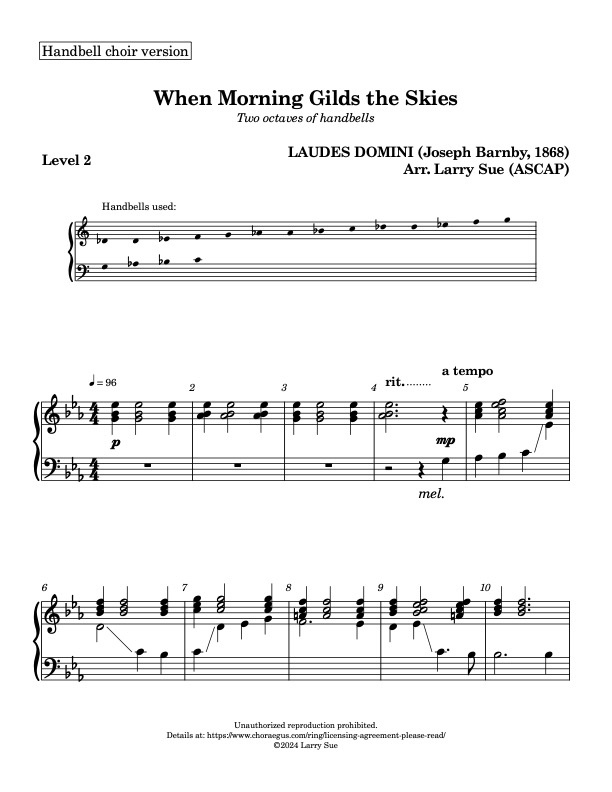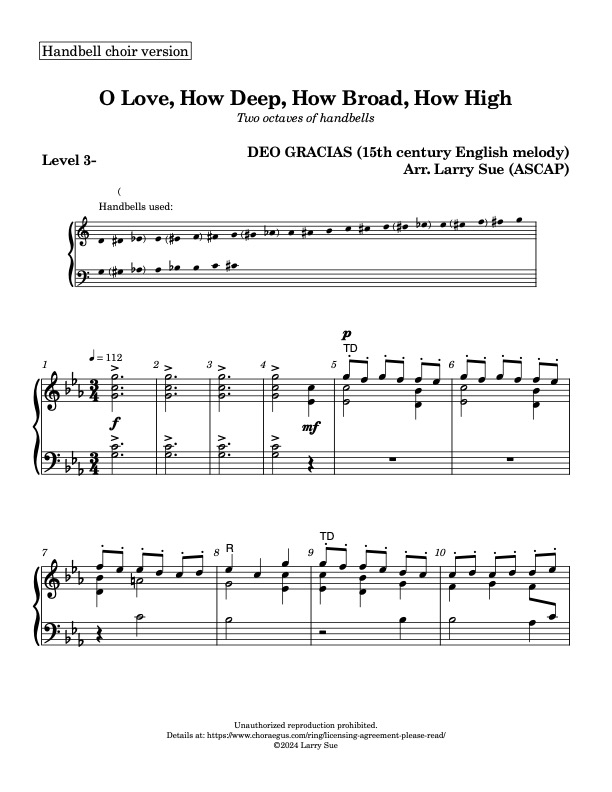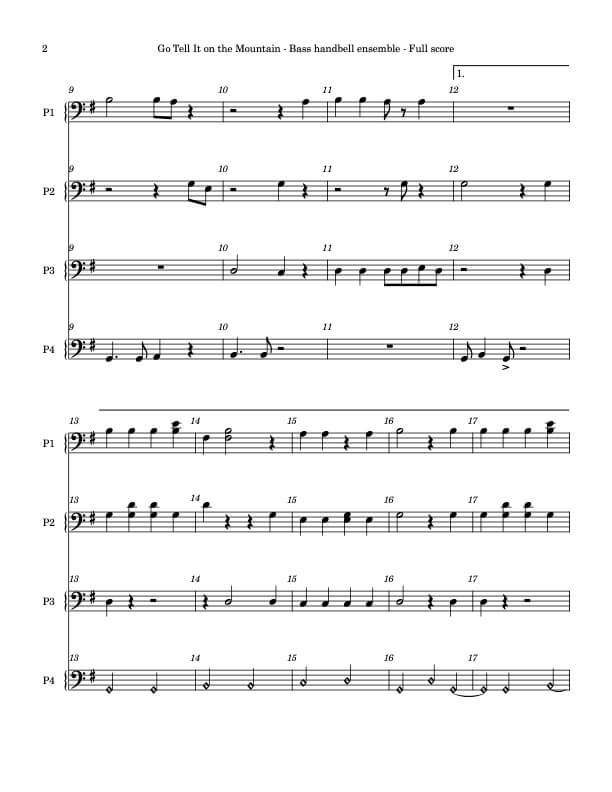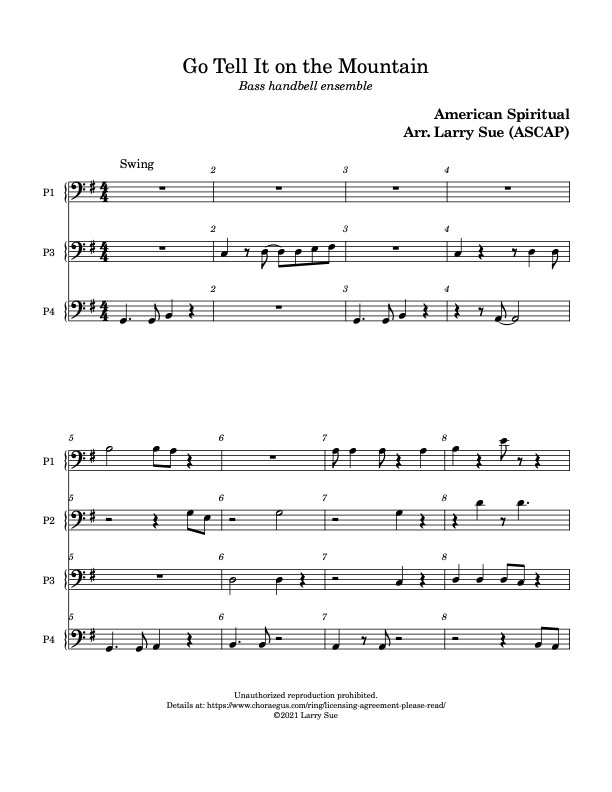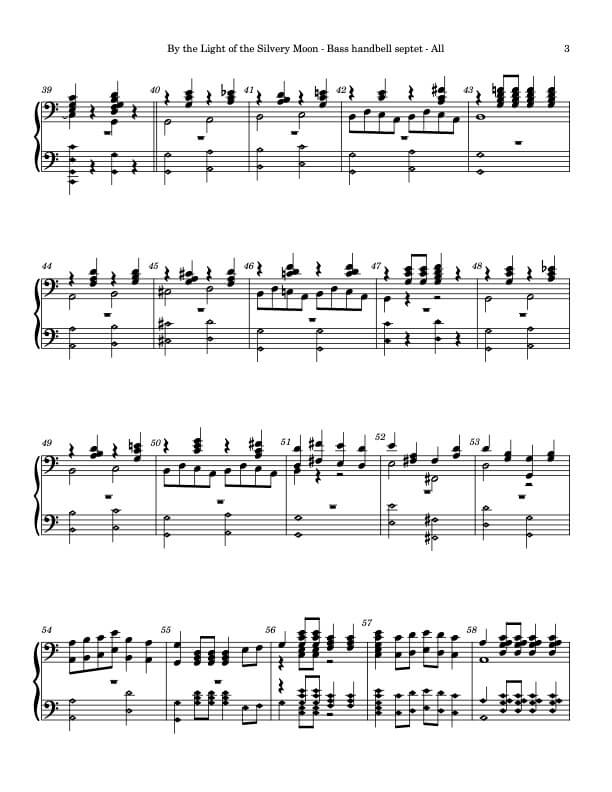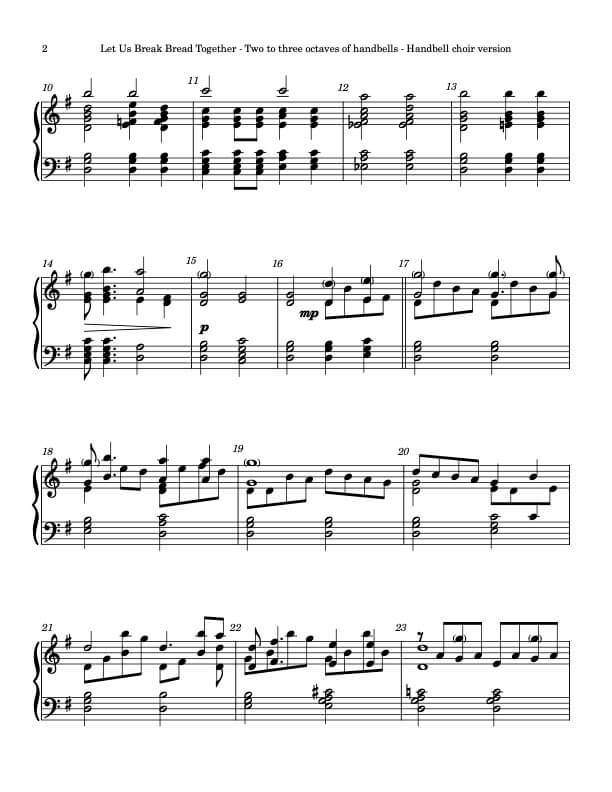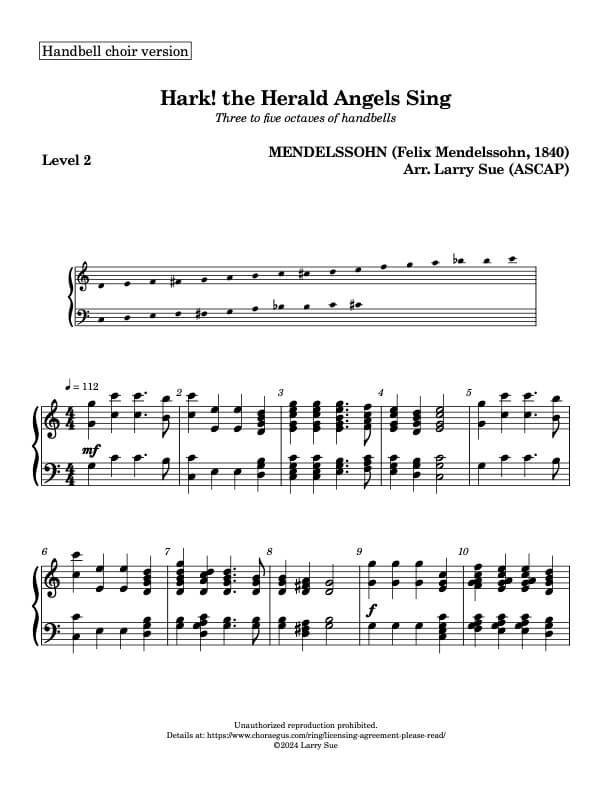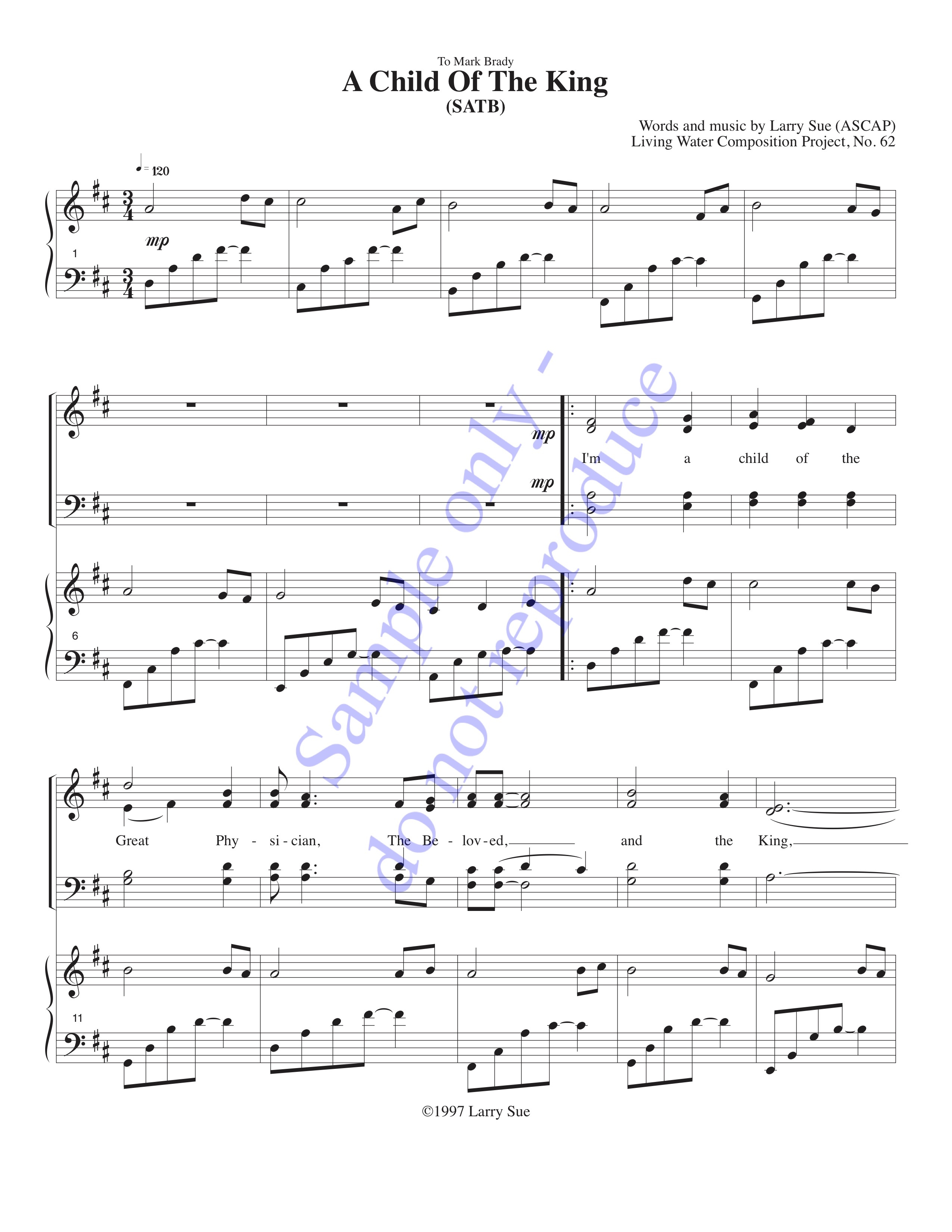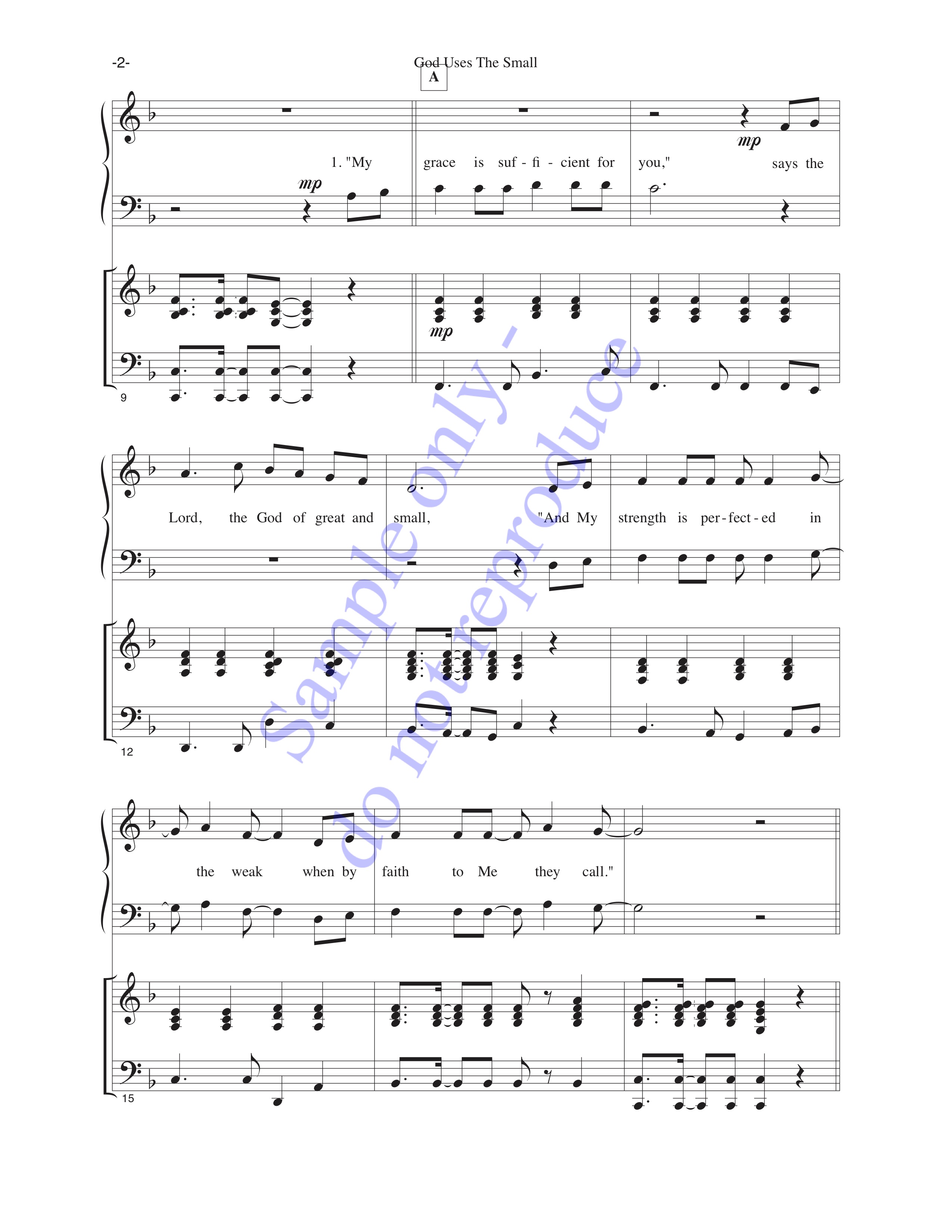Jesus is the Good Shepherd. He seeks us when we stray, and guides us when we stay by His side. And one day, He will take us to be in His presence forever. Our twelve-bell arrangement will give your congregation an opportunity to reflect on these wonderful truths! My Shepherd will supply my need, Jehovah …
Category: Handbell Ensemble
Be Thou My Vision (SLANE) – Twelve handbells and piano
We’ve expanded our accompanied eight-bell version of Be Thou My Vision by creating an add-on part for CDEbF5. All you have to do is buy the accompanied eight-bell arrangement and the part for the four lowest bells!
On Jordan’s Bank the Baptist’s Cry (PUER NOBIS) (Handbells, 2 octaves, Level 2+)
On Jordan’s Bank the Baptist’s Cry is sung to the 15th century hymn tune PUER NOBIS. It’s traditionally sung for Advent. Our two-octave arrangement of this hymn is published under the alternate Easter title That Easter Day with Joy was Bright. On Jordan’s bank the Baptist’s cry announces that the Lord is nigh. Awake and …
Feb 20
That Easter Day with Joy was Bright (Handbells, 2 octaves, Level 2+)
That Easter Day with Joy was Bright is sung to the 15th century hymn tune PUER NOBIS. It’s traditionally sung for Easter, but can be played for Advent asOn Jordan’s Bank the Baptist’s Cry. Our new arrangement for two octaves will work well with your ensemble, because it’s a very accessible Level 2+. That Easter …
That Easter Day with Joy was Bright (PUER NOBIS) (Handbells, 2 octaves, Level 2+)
That Easter Day with Joy was Bright is sung to the 15th century hymn tune PUER NOBIS. It’s traditionally sung for Easter, but can be played for Advent asOn Jordan’s Bank the Baptist’s Cry. That Easter day with joy was bright: The sun shone out with fairer light When, to their longing eyes restored, The_apostles saw their risen …
Feb 17
Come Thou Almighty King (ITALIAN HYMN) – Eight handbells
Come, Thou Almighty King is a grand hymn about our need for the Lord to have our loyalty. The tune ITALIAN HYMN was written in 1769 by Felice de Giardini, who had a thoroughgoing musical career as a violinist and composer. Our arrangement for eight handbells provides excitement with a moderate technical challenge, so you …
Feb 15
Winter Wonderland (Handbells, 5 octaves, plus handchimes, 3 octaves, Level 5)
According to Wikipedia, Richard Bernhard Smith wrote the lyrics for “Winter Wonderland” while recovering from tuberculosis in 1934. That same year, Felix Bernard added the tune that has now been covered over 200 times! This song speaks fun and romance during the cold season, about playing in the snow, and planning for great time ahead, …
Winter Wonderland (Handbells, 5 octaves, plus handchimes, 3 octaves, Level 5)
According to Wikipedia, Richard Bernhard Smith wrote the lyrics for “Winter Wonderland” while recovering from tuberculosis in 1934. That same year, Felix Bernard added the tune that has now been covered over 200 times! This song speaks fun and romance during the cold season, about playing in the snow, and planning for great time ahead, …
Jan 16
Amazing Grace – Twelve handbells, version 2
I suppose that, given there are a finite number of hymn tunes in existence, that at some point there will arise the opportunity to make a second (or third, or…) arrangement of a melody that’s been done previously. Today, we’re publishing our second twelve-bell arrangement of Amazing Grace! This new arrangement inhabits the same webpage …
Jan 09
Love is Patient, Love is Kind – a wedding song with a handbell part!
It’s our pleasure to publish Barbara Butcher’s original song Love is Patient, Love is Kind. This accompanied vocal solo based on I Corinthians 13 works perfectly with weddings, and has a very, very simple (and optional) eight-handbell part. Barbara composed a long and a short version. The long version includes a narration/recitation as its middle …

